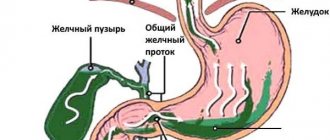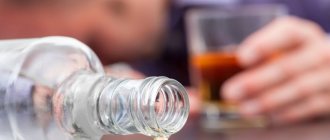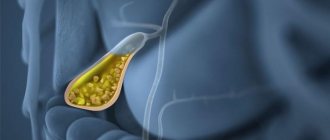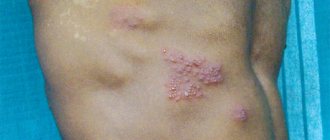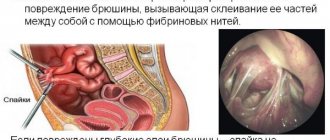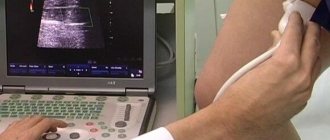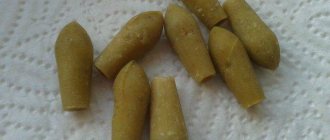Infant colic is what expectant mothers are so afraid of, and what experienced parents remember with a shudder. This period is imprinted in the memory by the heart-rending cries of the baby and the feeling of utter powerlessness.
Colic in newborns is completely normal. Contrary to popular belief about non-compliance with the diet by a nursing mother, colic practically does not depend in any way on the composition of breast milk. The reason for their occurrence is the immaturity of the infant intestine and the lack of enzymes for digesting food. There are a lot of reasons for a baby to scream, because screaming is his only way to communicate his needs. If you notice that every day at the same hours the baby tenses his tummy, tightens his legs and cries loudly, not calming down, even if you take him in your arms - know that this is IT, and it’s time to be puzzled by the choice of medicine for colic in newborns.
Here is an article about colic and symptoms - read it
This article is exclusively about medications.
All existing medications for colic that can be offered to you in a pharmacy can be divided into:
- Drugs for the prevention of colic.
- Drugs for relieving colic.
Using the former does not guarantee that this problem will bypass you. Rather, the attacks themselves will be less frequent and shorter. The effect of preventive medications is due to the fact that they reduce gas formation. The active ingredient is plant extracts of dill, fennel, anise, which have this beneficial property.
The latter should be used precisely at the moment of an attack in order to stop it. They are made on the basis of the substance Simethicone, which relieves the surface tension of the intestinal walls. Simethicone breaks down gases into smaller bubbles, thereby reducing discomfort. With the birth of a child, it is better to have both medicines for colic in newborns in your home medicine cabinet.
Herbal remedies for colic
Just like the previous group of anti-colic drugs, they have the property of reducing gas formation, but due to natural rather than synthetic substances in the composition.
- "Plantex" A product made from fennel fruit. Available in the form of granules for preparing a solution. Packaged in bags. Dissolve the medicine in warm boiled water. For 1 sachet of Plantex, use 100 ml of warm boiled water. Infants are given 1–2 packets per day, dividing them into 2–3 doses between feedings.
- "Dill water". 15 ml of the prepared solution is sold in bottles. A newborn over two weeks of age is given 1 tbsp. 3 – 6 times a day.
- "Baby Kalm" (Bebikalm). An Israeli preparation created on the basis of vegetable oils: mint, dill and anise. The oily mixture is diluted with chilled boiled water, pouring to the mark on the bottle. The resulting emulsion is dripped 10 drops into the baby's mouth before each feeding. The bottle with the finished mixture is kept in the refrigerator. An analogue is “Happy Baby”.
- "Kolik Kalm". American homeopathic remedy for colic based on medicinal herbs and charcoal. The drug is given to the baby 1/2 teaspoon, if necessary, it can be given after another 30 minutes, but no more than 3 times a day.
- "Bebinos." The drops are based on extracts of chamomile, fennel seeds, and coriander. Up to a year, it is recommended to give the baby 3-6 drops three times a day.
If you don’t have ready-made pharmacy dill water (for example, “Mommy’s bliss gripe water” , “Pedi Water” ), you can prepare it yourself at home. In addition, infusions, decoctions, and herbal teas provide good relief from abdominal pain: chamomile, sage, mint, caraway, which are often classified as folk remedies . Separately, it is necessary to highlight homeopathic medicines, for example, Enterokind.
Probiotics for colic
Sometimes pediatricians prescribe probiotics to newborns for colic - drugs that contain intestinal bacteria. Not all doctors agree with this position. After all, dysbiosis is not always the cause of bloating, but if the cause of colic is a deficiency of beneficial microorganisms, then probiotics are necessary.
- "Bifiform Baby" A product containing probiotics and prebiotics (dietary fiber digestible by microflora). Presented in the form of powders and oily liquid in a bottle with a dispenser. They help the baby if they are prescribed one dose once a day during feeding.
- "Linex". Available in powder form inside a capsule. The powder is added to breast milk or formula. 1 capsule is prescribed per day.
- "Acipol." Available in capsules and tablets. Children dissolve the contents of the capsule in water and give them a drink. Prescribe 1 capsule 2 times a day.
- "Hilak Forte". They have a strengthening effect on the baby's immunity. Available in the form of drops. A newborn is prescribed 15-20 drops 2-3 times a day before feeding or directly during meals.
- "Bak-Set baby." Contains seven types of beneficial bacteria. Available in bags (sachets). Before use, the contents of the sachet are dissolved in a small amount of water. For infants, one sachet per day is enough.
- "Bifidumbacterin". It comes in a variety of forms, but is most often used in liquid or powder form. Newborns are given one sachet of the dry drug three times a day, first diluted with water. Liquid "Bifidumbacterin" is given twice a day half an hour before meals.
- "Lactobacterin". For newborns, it is used in powder form in glass bottles containing 3 or 5 doses of lactobacilli acidophilus. The contents of the bottle are dissolved in chilled boiled water at the rate of 1 tsp. for 1 dose of Lactobacterin. Infants up to 6 months are given 2-3 times a day, 1-2 tsp. about one hour before meals, after 6 months and up to a year, 2-3 tsp.
- "Primadophilus child." It is a dietary supplement containing strains of bifidobacteria and lactobacilli. For infants, the powder form is used. Give the supplement 1/2 teaspoon once a day 10 minutes before meals.
- "Rela Life" ("Rela Drops"). Contains strains of lactic acid bacteria. Used for babies in the form of drops. It is enough to give 5 drops a day once to provide the child with lactobacilli important for his intestines.
More detailed information about these drugs is contained in the instructions for use. You can also use “Bakset baby”, “Normoflorin”, “Biogaia”. For bottle-fed babies, it may be advisable to use baby formulas with probiotics and/or prebiotics (anti-colic formulas).
Classification of drugs
Anti-gas medications are divided into two groups according to their action:
- preventive;
- cupping.
A doctor should select a medicine for colic based on the causes of discomfort. Most often prescribed:
- enzyme agents;
- enterosorbents;
- probiotics;
- preparations based on simethicone and dimethicone;
- herbal medicines from plant extracts.
The last two groups alleviate the baby’s condition, reducing the intensity of pain. The remaining remedies prevent discomfort by affecting the cause of colic.
Preparations for prevention
It is better not to wait for painful attacks in the baby, but to prevent the formation of gases in the immature children’s intestines. With a deficiency of enzymes, the breakdown of nutrients occurs more slowly - this is “fertile soil” for the formation of colic in an infant. After examining the child, the pediatrician will prescribe medications with lipase, amylase or protease to improve the functioning of the gastrointestinal tract.
A lack of bifidobacteria and lactobacilli in a newborn leads to dysbacteriosis and gas formation, but it is important to identify the problem in advance. If your baby is already experiencing abdominal pain, probiotics will not help; they should be taken as a preventive measure. They are also powerless against functional immaturity of the intestine.
Herbal remedies based on dill, fennel, chamomile, coriander seeds, anise and peppermint are considered safe medications for colic in newborns. Plant extracts have an antibacterial, carminative and antispasmodic effect on the children's gastrointestinal tract, relieving unpleasant and painful symptoms.
Drugs for relieving colic attacks
If increased gas formation is already making itself felt, it is necessary to use the “heavy artillery” in the form of drugs based on simethicone. In the child’s intestines, bubbles form a persistent foam, which causes pain. The active component of the drug takes on the function of an “defoamer”, removing gases.
Additionally, but only after consultation with a pediatrician, enterosorbents should be used. Thanks to the porous structure of the product, gases and toxins are absorbed and then removed from the body naturally. This medicine for colic for babies does not affect the intestinal microflora and does not irritate its thin mucous membrane.
Folk recipes
Mothers resort to unconventional methods of treatment on the advice of the older generation. Among the popular remedies, the most effective are:
- dill water;
- fennel tea;
- warm diaper on the tummy;
- gas outlet pipe.
Important! You should use a gas outlet tube only after consultation with your pediatrician. Frequent use increases the risk of disruption of the baby's digestive system.
The warmth of the mother's body, latching on to the breast, and gentle rocking will help reduce the pain. You can place the baby with his stomach on his mother’s lap and stroke his back. Folk remedies do not so much help with colic as they calm and support the baby.
Entrosorbents
Colic may be accompanied by inflammation in the intestines, with the release of toxic products. In this case, the doctor may recommend enterosorbents that are able to bind harmful substances and remove them without causing any harmful effects on the body.
- "Smecta". The active substance is octahedral smectite. Available in sachets (sachets), the contents of which are mixed with water before use. The resulting suspension is given to children under one year of age for the first three days, two sachets per day, then the dose is reduced to one sachet per day.
- "Activated carbon". For newborns weighing less than 3 kg, give 1/4 tablet, with a weight of 3-5 kg, 1/3 tablet. For older children, the dosage is calculated based on weight. The tablet is thoroughly crushed, mixed with a small amount of water and given no more than three times a day.
https://youtu.be/zosR0C69XZA
Acipol
Acipol is a remedy designed to regulate beneficial microflora in the intestines. It can be used in newborns with chronic colitis, intestinal infections, and also after prolonged antibacterial therapy. This is one of the best drugs in its category, suitable for infants. It contains acidophilic lactobacilli, which contribute to the normalization of the gastrointestinal tract as a whole. The medicine requires a course of treatment, which should last for one month. To continue therapy, you should first consult with your pediatrician.
Enzyme preparations
Often the cause of colic may be a deficiency of the enzyme lactase, which occurs due to the development of the child’s digestive tract in the first months of life. This enzyme breaks down lactose. If there is little enzyme, then unprocessed lactose enters the large intestine, where it causes excessive gas formation and, as a result, colic. In this case, treatment is carried out using drugs containing the missing lactase enzyme (“Colief”, “Lactazar”).
- "Lactazar." When breastfeeding, the contents of one capsule are mixed with 30 ml of expressed breast milk and the baby is given medicine first, and then breastfed. When artificial feeding, one capsule of the drug is dosed for every 100 ml of formula.
Read more about lactase enzyme deficiency in newborns.
Is it possible to give “No-Shpu” and “Papaverine” to a newborn for colic?
These painkillers eliminate abdominal pain caused by spasms (antispasmodics), but do not eliminate the cause of colic itself. This is only a temporary measure and only in extreme cases with the permission of a doctor, since No-Shpa and Papaverine are not used for up to a year, and Papaverine for up to six months due to the risk of side effects. If there is such a need, the dosage of the antispasmodic is determined by the doctor:
- from 1/4 to 1/8 No-shpy tablets per day;
- from 1/4 to half a tablet of “Papaverine” or in the form of suppositories, 1/3 of a candle.
Important! The No-shpa tablet is very bitter and causes the baby to produce copious amounts of saliva, so it is important to hold it upright after taking the medicine. This way, excess saliva will come out and will not interfere with breathing.
Baby Calm
Baby Calm is a completely natural remedy that includes herbal ingredients that have a carminative effect. One of the best colic remedies is specifically designed for newborns who have a sensitive digestive system. It contains dill, anise and mint oils, which are known for their bactericidal, soothing, antispasmodic and anti-inflammatory properties. The medicine promotes easy passage of gas and relieves spasms that cause discomfort. The instructions indicate that the drug can be used from the first day of life, however, some pediatricians do not recommend giving infants even the safest drugs before two weeks of age.

